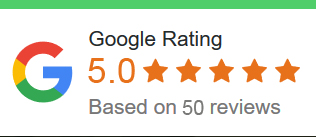
If you’ve heard the phrase “Content is king”, here’s an update, “Content is not king, he is the kingdom”. And yes, we believe that. So much so that we are here, feeding our blog, delivering quality tips for you and producing articles about the main interests of our market. Yes, content is king.
And this Content Marketing arrived to bring infinite possibilities to the way we communicate with our leads and, of course, to the way we attract new leads to our business. And today we are going to talk about a very important factor precisely to keep the lead base growing and with new faces: how to choose keywords for a successful strategy.
Want to know more? Just follow the reading!
What are keywords and how do they impact SEO?
Let’s start at the beginning. Do you already know what keywords are?
Keywords – or keywords – are terms composed of one or more words and which are used by search engines (such as Google) as parameters to identify and classify the results available in your catalog during a search performed by a user. They are the main instrument for these mechanisms to work as promised.
From the keyword searched, the engine knows what the user’s question or interest is and finds related pages, ranking in order of relevance : the most qualified appear first and, consequently, will have greater visibility and volume of access from the page results.
And all of this is part of the methods studied and applied in SEO (Search Engine Optimization) , which boil down to the practices that must be adopted to make a website more relevant to search engines over time.
And this relevance will be measured, mainly, by factors such as page organization, content qualification and, of course, a job well done with the keywords.
The first page is right there
Well, now, we already know that good SEO practices considerably increase the chances of content gaining positions and standing out in search results.
And yes, that is true. And reinforced by statistics that point out the main benefits of a well positioned SEO, for example, points out that 75% of users do not click on results positioned after the first page of Google (how many times have you advanced to the second page?) And, according to HubSpot, 34.36% of clicks on the first page get the website that appears at the top of the list.
Cool huh? Even cooler is to see the results growing as the strategy fits!
Of course, it is worth remembering that the results with content and SEO strategies are seen in the medium and long term. So, do not neglect your good practices if in the first 30 days you still do not identify the expected improvements.
Make constant adjustments; maintain a well-organized publishing routine and qualified content, which, with patience, your results will arrive. Use the first few weeks to test, understand what types of content can make the most sense and, of course, keep in mind subjects and means to enrich the delivery of content to your audience.
A great tip: look for references ( as we do here)! Producing well depends – and a lot – on the variety of information and references consumed by the producer. Look for benchmarks with players from your market and also from other niches that already have the results you want and identify what can be used or adjusted within your strategy.
Have discipline and focus that the first page can arrive even before you think.
How do I choose the best keywords for my strategy?
The answer is simple: develop methods and get to know your audience. The difficult thing can be to make it happen.
Imagine that your product is a Saas (Software as a Service) that serves a B2B audience. You already know all the needs that it meets and, mainly, specific problems for which your audience wants to seek a solution.
In addition to the references, which you have already researched after the topic above, one thing is essential to know how to choose the best keywords: know your audience, your personas .
Always try to understand what are the pains that bother you the most on a daily basis and that would make you search for content like the one you are producing. Knowing your product – which you already know very well – and knowing what the target’s interests are, it is easier to plan ways and means to deliver answers to your doubts.
This text, for example, was written by us after we identified that the theme “keywords” not only has to do with what we live here in Buscemiitsolutions, but there is also the possibility of giving good answers to you, who access our blog.
What remains of lesson about the role of SEO agency in Chicago: you can even gain prominence in the search network from paid media campaigns (which are also great and which we will talk about here soon), however, with the effort sure to produce content, it can guarantee organic accesses , by means that do not require investment, in the medium and long term . This means less expenses and more relevance for your website, in addition to ensuring a more lasting prominent positioning.
The right words in the right places
Another quick question: do the images you place on your site appear on search engines?
Yes, they do. And they do not depend on keywords applied only to the text that accompanies them: images can also be suitable for SEO and have attributes that you should pay attention to. We will talk about them again.
Continuing, it is important to remember that Google takes into account a number of factors (hierarchical) to understand what the page in question is about and what is its relevance: in addition to the content itself – and the quality of it -, are analyzed factors such as URL, page title, SEO title, meta description, headings tags (mainly H1 and H2), scan ability , among others – including more technical ones, which we will leave for another article – in which the mechanism evaluates how keywords are worked on, in addition to the incidence of the keyword and its synonyms throughout the content.
For images, as we talked about above, pay attention to the image title and alt text attributes (for more specific cases, keep an eye on the size in bytes of the image, as pages with slow loading are also left behind in the SEO race ).
Anyway, this whole selection of factors is analyzed by Google when it comes to defining whether or not a page should be shown in search results and in what position it should be , and what will determine the quality of this analysis is the way words are being used in each of them.
Tools that can save you
We also know that it is always important to have a little help when setting up a plan. Fortunately, in SEO strategies, this help in the form of tools also exists!
As here we like to talk about digital marketing tools and things that can help you in your daily life, let’s mention some that can save you when choosing keywords:
- Google Trends: Google tool that returns search data such as volume, related keywords and even places of highest incidence for the most searched keywords in the tool.
- SEMRush: a very robust reporting tool (on paid plans), it allows a complete scan of the domain status in relation to SEO elements, in addition to surveys that show the main data of keyword accesses and even the way competitors are positioned.
- MOZ: another tool that allows you to do an SEO audit, but focused on reports and insights for ranking in search systems and search on SEO structures such as backlinks and search volume.
- SEO Analyzer: also known as Ubersuggest, is a web environment signed by guru Neil Patel that, in a few simple steps, delivers a detailed report on the health of the site in terms of SEO, providing insights into corrections that need to be made.
And there’s so much more! We promise to bring you an article talking only about these tools soon!
That’s it for today! But, of course, now it’s time to take our tips and get your hands dirty. Remember that your website is your online business card and deserves a lot of attention (in addition to being delivered to a lot of people!).
You can also count on our help, either by subscribing to our newsletter, to receive our main tips in your email, or by scheduling a chat.

